
Forever GM with an unhealthy dose of curiosity who suddenly became a TTRPG designer and started publishing his ravings. Slowly. *Posts are in English first poi in italiano.
319 posts
Thecava - The_Cava - Tumblr Blog
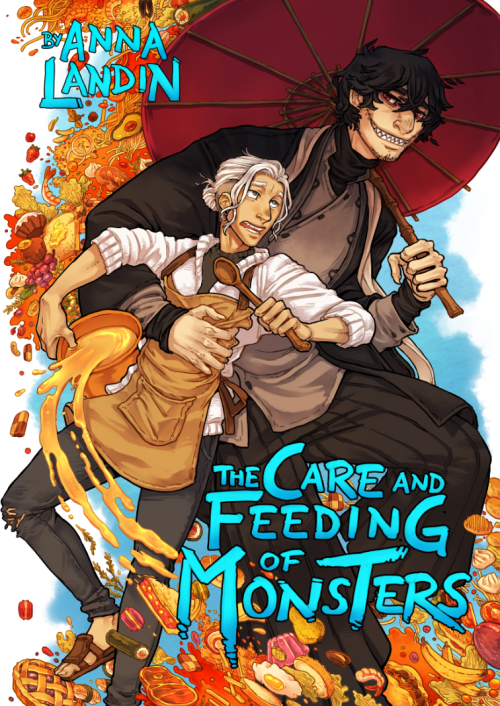
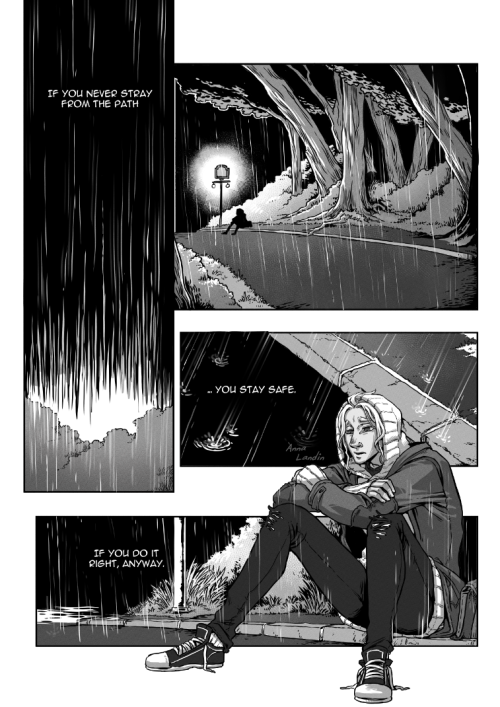
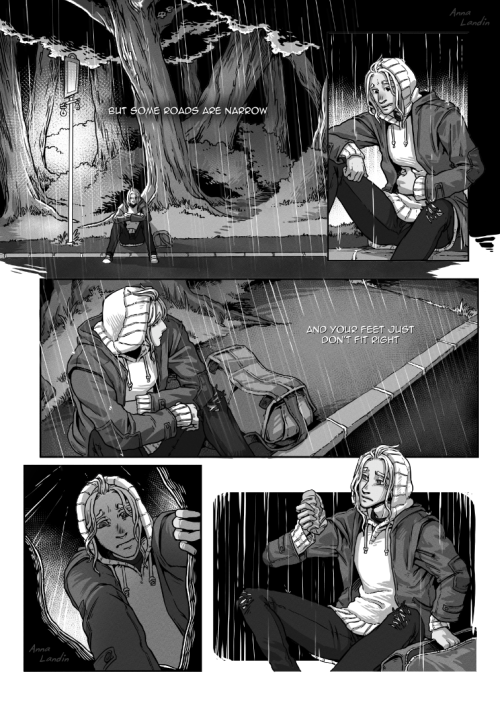


The first episode of my self-indulgent comic about food and monsters is now available to everyone!
Noah, down on his luck and flat broke, encounters a weird but friendly stranger one night, and accidentally ends up the personal cook of someone not-quite-human.
Episodes 2 and 3 are already up on Patreon, where the comic will be posted as I finish pieces of it. Patrons are currently 7 pages ahead of everyone else.
If you like what I do, please consider chipping in some money so I can keep doing it.
That video of Alex Hirsch reading S&P notes for Gravity Falls conveys a few things to me:
1) the U.S. entertainment industry (especially animation) is run by older conservative types who make up offensive terms and get really mad about them.
2) the people who run Disney would be the first to fall in line with a fascist regime.
3) most of the media we consume is tailor-made and watered-down to appeal to the tastes of older, deeply religious conservative audiences.
4) conservatism, not the left, is and always has been the biggest voice of censorship in American culture.
i'm a complete slut for when ttrpgs mechanics inherently throw any preconceived notions of a "story" out of whack. i think ttrpgs are good role-playing games and not just 'narrative' games where a grand narrative is followed by a group of people. don't get me wrong: those are perfectly valid playstyles, but it's been the default and, even, the subject of snobbery ("my game is roleplay heavy with a great story" as if that makes any ttrpg tautologically better than any other ttrpg). i think ttrpgs are at their best when everyone at the table is surprised by how the fiction is moving along.
i think the "storygame" distinction isn't entirely needed, but it's become something that I've always gone back to as a category when looking at all these rpgs. to me, a storygame is something that prescribes a particular narrative or story and all of its mechanics are to facilitate that kind of story only. to me, all storygames have this, while some ttrpgs have this. some ttrpgs are storygames too, and that's fine. they're both.
too many rpgs think role-playing games = storygames when i don't actually think so! personally, i think role-playing games are games wherein you play a role in. sometimes that leads to a story, other times it leads to just a slog through a dungeon, which honestly can be just as fun. i think ttrpgs can be storygames, but not all storygames are ttrpgs. some storygames are made for creating a narrative, while i think ttrpgs should be there to create a role.
not to say this invalidates in my perspective the various ttrpgs that tend to not have this, such as things like Microscope and whatnot wherein all assumptions of a ttrpg are subverted. i think those are ttrpgs all the same! but i think it'd be bad to assume that role-playing games are "better off as storygames" or that "combat is not part of role-playing". those are all role-playing, they have to be, because that's the medium. choosing to use your Level 1 Fighter Power Cleave to strike at two kobolds at the same time is role-playing!
anyway that's why i like it when ttrpg facilitate mechanics for emergent storylines. ttrpgs are probably bar none the best medium for creating emergent narratives: play is all emergence, even. the narrative doesn't even come until after everything is done! it embraces the medium. you don't need a rigid, critical role dimension 20-esque narrative for a good game to be had. sometimes you can just enjoy the game for what it is, and find out later on that there was a huge story to be had from it. this is why a lot of my design now tends toward the simulation-y instead of the prescriptive-y, almost OSR even

( 私の名前はナファです )
/ DONT REPOST, PLEASE REBLOG /
*APHRODITE98WAVE*
if you’re having a bad day, here’s a cute little marching band
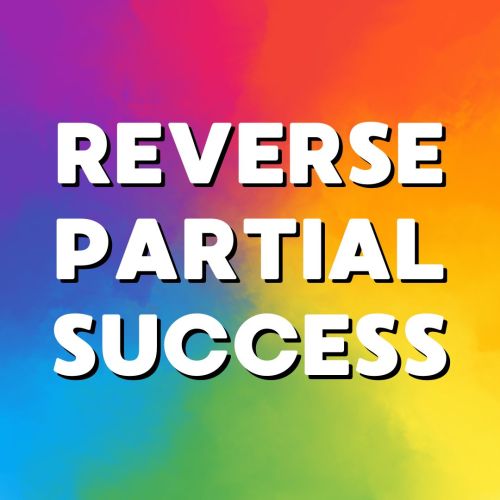
I keep thinking of the double-edged sword of partial success.
On one hand, they do help move the story forward. On the other hand, coming up with complications every time can be taxing.
That got me thinking: what if we reversed the way we look at partial success?
See, a partial success is usually seen as taking away from a full success. It is a ‘success, but…’.
You start with the assumption that you did the thing, but then you take a step back and inject a cost, a complication, or a choice.
I love it, but it can be overwhelming.After the 6th partial success in a row, you're like: “You convince the prince, but… I don’t know, you twist your ankle or something, I don’t care. Let’s move on.”
I've tackled this problem in different ways. Mechanizing it, hand-waving it, offering prompts and tables… They work, but I kept exploring. And that led me to the idea of looking at partial success from the other end.
What if we did the opposite? What if we started from a failure, and built up towards success with costs? Would it help with narrating partial success if we could pick and choose a few costs to work our way towards success?
So in my current project, I adopted this.
You roll 2d6 and need to get a 10+ (which is hard). If you don't, you can buy your success by spending different resources.
Let's see an example:
With a determined yell, I lunge forward, my blade slicing through the air towards the guard. I roll a 7, not enough for a successful strike. I spend one Vigor, representing the sharp sting of the guard's counterattack grazing my side. I also spend one Gear, as my sword hums with a magical energy. Lastly, I spend 1 Resolve. The guard's strength has caught me off guard, a flicker of fear igniting in my chest. With vigor, gear, and resolve combined, I reach the threshold, turning my near miss into a solid hit.
You see what I see?
It feels like you conquered a hit, instead of having your success tainted by costs, although it is technically the same thing.
Is it just me?
Looking at my resources and spending them as a little puzzle to get to my success threshold made the act of incorporating these costs into the narrative more natural to me.
Perhaps the feeling that you are investing into a success is a more powerful incentive to do so?
Anyway, I thought it was pretty exciting to explore this concept. So much so that it ended up being the core of a new game. And I’m itchfunding it right now!
If you want to see this mechanic (and some of its cool variations) in action, check it out!
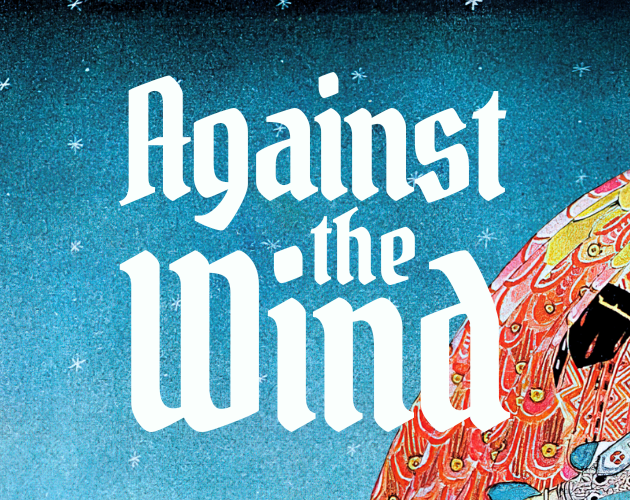
*reblog for a more universal wizard tower*
Edit: it's supposed to say purposeless area,
I'm going to be honest, 99% of TTRPG combat systems are either not very fun or work much better as video games (partially because they're not fun) and we, as game writers and developers, need to stop pretending that they are.
We should especially stop pretending that combat is, really, ever "tactical." There's almost always a way to optimize it because it's based on math and probability distributions while actual tactics are about meaningful choices in the face of unknown information and a reactive enemy who is not trying to make you have a "good story."
Even in combat-centric settings or games, I feel like more effort should be spent on making everything but combat feel fun.
I'm much more interested in finding robust ways to create interesting ways of interacting with the game world than adding a tweak on what is functionally battletech or warhammer or whatever that's been so watered down it's homeopathic.
I know that’s kind of the go-to thing to show that a vampire character is “one of the good ones” or whatever but it actually seems a little bit more fucked up for a vampire to steal blood from a blood bank than for a vampire to attack people for blood, at least as long as it’s not the kind of vampire where a bite is instantly lethal like it never stops bleeding.
People can recover from losing some blood but blood bank blood is constantly in short supply and is reserved for people who imminently need blood transfusion of a specific blood type or else they die.
Before the spotify wrapped posts start flooding in, let's do a "Gaming Wrapped". Tell me in a reblog or tags:
Game you played the most this year: Tenra Bansho Zero, one of my all time favourites.
Favorite new-to-you game you played this year: Break!! Every session left me itching for more.
Favorite game you read this year: Perils & Princesses, it's been such a pleasure to just read, but it also turned out to be a really cute game
Game you stared longingly at instead of playing or reading it: The Chronicles of Lodoss War, but it'll have to wait until my Japanese is good enough.
Game you're most looking forward to playing next year: Mythic Bastionland, looks just my cup of tea, and it's gorgeous to boot!
Favorite game/game supplement you wrote this year: Sventole Balistiche / Ballistic Bombshells, theatre of the mind tactical game about girl operatives trying to find their place in the world and defining their identity.
Game you’re looking forward to writing next year: Favella Manesca / Let your fists speak, duet game meant to replicate beat'em ups.
Dopo "Spotify Wrapped", facciamo un "Ruolando Wrapped":
Il gioco a cui hai giocato di più quest'anno: Tenra Bansho Zero, uno dei miei preferiti in assoluto.
Il gioco nuovo, per te, che hai preferito giocare quest'anno: Break!! dopo ogni sessione mi resta solo la voglia di giocarlo ancora.
Il gioco che hai preferito leggere quest'anno: Perils & Princesses, estremamente scorrevole e carino, si è inoltre dimostrato veramente delizioso.
Il gioco che sei stato a fissare invece di giocarlo o leggerlo: Le Cronache delle Guerre di Lodoss, ma dovrò aspettare di sapere un po' meglio il giapponese.
Il gioco che stai più aspettando di giocare l'anno prossimo: Mythic Basionland, l'estetica è meravigliosa, ma anche le dinamiche sembrano proprio nelle mie corde.
Il gioco o supplemento che hai preferito scrivere quest'anno (se applicabile): Sventole Balistiche, gioco che porta tattica nel teatro della mente su ragazze dispensatrici di morte che stanno cercando di definire la loro identità e il loro posto nel mondo.
Il gioco che non vedi l'ora di scrivere l'anno prossimo (se applicabile): Favella Manesca, gioco a due per emulare i picchiaduro.
Before the spotify wrapped posts start flooding in, let's do a "Gaming Wrapped". Tell me in a reblog or tags:
Game you played the most this year
Favorite game you read this year
Game you stared longingly at instead of playing or reading it
game you're most looking forward to playing next year
favorite game/game supplement you wrote this year (if applicable)
Coming up with puzzles for my players has gotta be one of the hardest parts of TTRPG prep. Either the answer will be so glaringly obvious that they'll figure it out immediately or they're going to spend 5 hours talking about it and still get it completely wrong and there's literally no way to know beforehand
Reblog if you've formed a meaningful relationship with someone you met online.
there aren’t enough posts going around about the swedish cryptid known as the skvader which is a rabbit with pheasant wings and also a very good boy.
Things Terry Pratchett Did
Made fun of the “unnecessarily naked/scantily clad woman,” “sacrificial virgin,” and “sexy heroine” tropes in his first two novels. The first was described as being the most powerful of her clan of dragon-riders and the nakedness was properly treated as unnecessary in a clear parody. The second turned out to be one of the more level-headed (while not well-educated) members of the party after her initial introduction, and also had a spine and knew (and got) what she wanted. The third was described as wearing sensible clothes, was pretty but not sexualized at all, and was practical and smart.
Wrote an entire novel to critique the unequal treatment of “men’s magic” versus “women’s magic” in the fantasy genre. Portrayed witches as just as if not more capable than wizards (when it comes to actually helping people, in particular), and also generally having more common sense than them. Nevertheless created a little girl character with wizard powers, and had her decide neither wizard nor witch magic was sufficient and develop a new kind of magic all her own.
Included sex workers in his worldbuilding. Made jokes about them the same way he did every other kind of person of any profession, but was also highly respectful and never critical of these jobs. Described the head of the ‘Seamstresses’ Guild as one of the most influential people in the biggest city in the world. Never showed or described in detail any sexual violence, including against these workers. In fact, made sure to say that anyone in the city who harmed a sex worker would be dealt with painfully, embarrassingly, and/or lethally by two fearsome elderly ladies. Even his more ditzy stripper character quickly smartened up and learned some true self-respect–not by quitting her job but by realizing she didn’t have to take any shit from men.
Included strong female friendships aplenty. Included female enemies who were enemies over things other than men. In general constantly passed the Bechdel Test and not only that, left it in the dust and had way more meaningful and realistic representation.
Five words: Dwarf Women Are All Trans. More words: And there’s no way to know if some of them were trans in the way we Earth humans would understand it, too, and he clearly didn’t think that sort of genitalia-based gender labeling mattered. Did not turn his trans dwarfs into a joke, but treated them simply as people–including a scientist/forensics officer in a police department, a prominent fashion designer, and the literal King of all dwarfs (who subsequently came out as Queen). Portrayed transmisogynists as unequivocally wrong, and had protagonist characters stand up for and protect their trans colleagues and friends. See also: had genderfluid characters in two of his books and at least one trans man, as well as confirming canonically that there are gay wizards, one of whom is really good at football.
One of his mainest of main characters was a blunt, bad-tempered, prideful old woman who is also good to her core. Didn’t gloss over her unfriendliness or excuse it, but made her complex and interesting and overall likeable despite all that. Also had a very amiable old lady character who also had a temper and would throw hands with anyone who’d mess with her family or best friend. In general, steel-souled old ladies, wow. Also steel-souled young girls.
Said he was incapable of writing a weak, wilting female character, and honestly I can’t think of a single one in any of his books.
Please feel free to add to this list with other Things Terry Pratchett Did because I definitely didn’t say them all!
At every panel I've ever sat on about making tabletop RPGs, the question is asked "how do you get inspiration for new games" and the answer from all of us, no matter the lineup, is always "CONSUME OTHER MEDIA!!!"
Play other RPGs
Play board games
video games
watch movies
tv
read more books
attend film festivals
Let other art inspire you. Identify what makes you feel a certain way. Think and talk about why.
Fun fact: Record of Lodoss War is an anime known for two things:
- being a direct adaptation of the author's D&D campaign
- the soundtrack ripping off Leviathan, an somewhat unremarkable sci-fi horror movie, itself ripping off The Thing and Alien
Yep! To be specific, the anime is an adaptation of a replay (basically a dramatized written account of an RPG) of a B/X D&D (best edition) campaign. The Internet Archive has an unofficial English translation of the replay as it first appeared in the Japanese Comptiq Magazine over here:
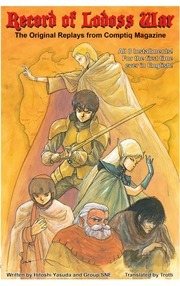
It doesn't cover all of the first "season" of the anime, but a lot of it. I 100% recommend reading the replay and watching the anime, you can see a lot of cool things that make sense because of the ruleset being used:
Ghim and Deedlit just are like that because their classes are Dwarf and Elf respectively.
The group successfully utilizes Protection from Evil against gargoyles. Protection from Evil prevents any "enchanted" creatures (defined as creatures that can only be harmed with magic weapons) from so much as attacking characters under its effect in some older editions.
Anyway, the Lodoss people tried to make a deal with TSR for making an official D&D setting out of Lodoss (which to my knowledge is named that simply because the DM was like oh what's a cool and exotic name, I know, how about the island of Rhodes' Japanese name!) but was hit with a cease and desist, so they made their own RPG, Sword World, which is more relevant in Japanese TTRPG culture these days than D&D.
Um anyway sorry for infodumping. I didn't know about the soundtrack thing. I'll have to give it a listen.
Cloud Empress Rulebook FOR FREE!
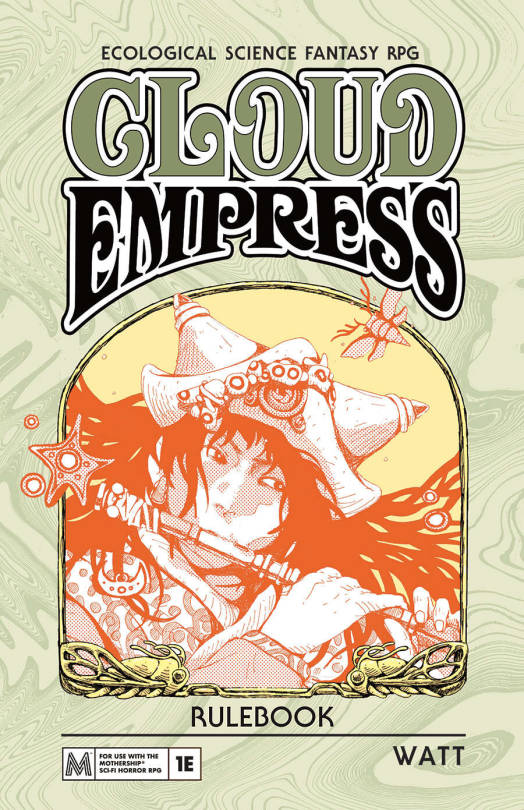
Several months ago, I did development work on Cloud Empress, a standalone, Nausicaa-inspired TTRPG by worlds of watt. It's full, beautiful rulebook recently went up on DriveThruRPG FOR FREE so I think folks should check it out. I'm really proud to have taken part in the project and think the end result is tremendous! Plus, there's so much more coming for it in the near future!
Get your copy HERE!
As in like what was the default thing you would draw on the margins when you were in class and had no creative ideas? Personally I was a wings and eyes kid. Usually wings though.
Please reblog to increase the sample size!
This! I live for this!
I wrote a TTRPG that inspired a ballet in NYC!
The World We Left Behind is a two-player worldbuilding game about exploring a deserted planet and learning what happened to the aliens who called it home.
Your characters will take multiple trips to the planet as they attempt to answer the question “what happened here?”
TWWLB was commissioned by BalletCollective to be used as Source Art in their upcoming 2023 season, THE MOMENT IS IMMINENT. BalletCollective has created a ballet inspired by TWWLB, which is being performed in NYC this fall by dancers from New York City Ballet.
Performance dates are:
Tuesday, October 31 at 7:30 PM
Wednesday, November 1 at 7:00 PM – Gala Performance
Thursday, November 2 at 7:30 PM
Tickets are available here.
A free livestream of the The November 2nd 7:30 PM performance will be available to watch at balletcollective.com/live (this webpage will become available closer to the performance).
TWWLB was designed in collaboration with Troy Schumacher (choreographer) and Phong Tran (composer), who created the music and the choreography for the ballet.
great news, one of the books I was looking for arrived today and it has a whole section on pre french revolution book piracy and the thriving trade in hiding and trafficking banned literature.
i understand why people do it and it's obviously well intentioned but i think mechanically incentivizing the use of safety tools is a silly practice because it then mechanically incentivizes doing things you know will result in safety tools being used. and of course i don't think anyone would actually follow that to its logical conclusion and do that but it is what that kind of mechanization inadvertently makes into 'optimal play' which is imo a bit of an oversight
enough toxic masculinity I'm ready for salubrious masculinity. I'm ready for a social movement that encourages (esp straight, cis) men to indulge in things that make them more joyful, emotionally healthy, and help them strengthen not core muscles but core compassionate communication skills.
You can't cast potent magics on an empty stomach!
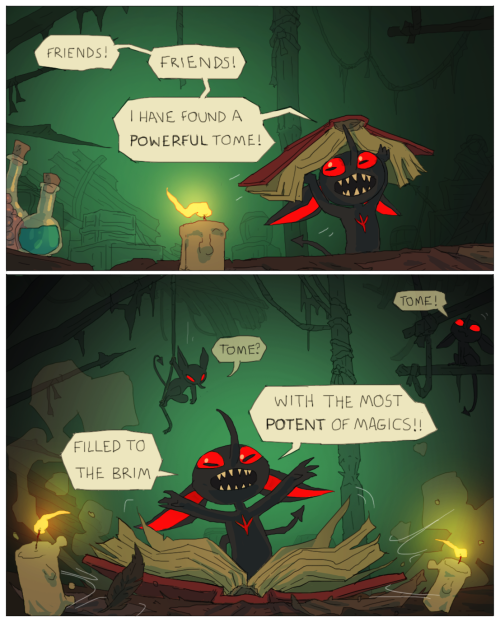
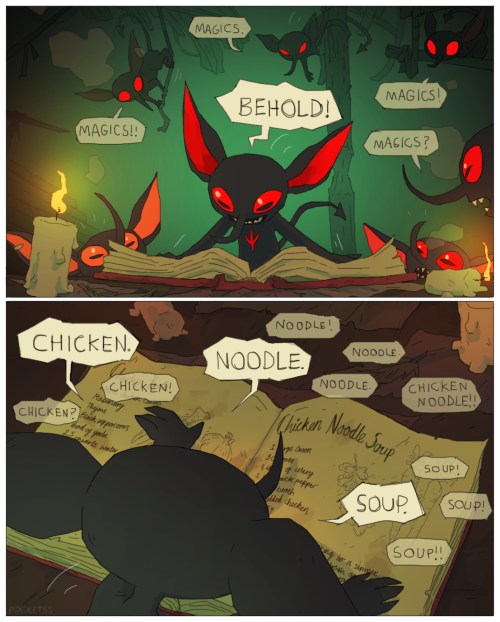
mmm soob
reblog if ur mutuals can always dm u to be friends !!!!!!!!!!!!!